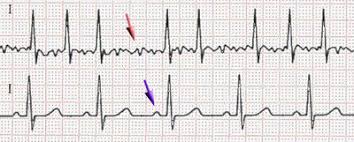Author Interviews, Heart Disease, JAMA, Lipids / 03.07.2024
Lerodalcibep in Patients With or at High Risk of Cardiovascular Disease
MedicalResearch.com Interview with:
Evan A Stein MD PhD FACC
COO/CSO
LIB Therapeutics
Cincinnati. OH USA 45227
MedicalResearch.com: What is the background for this study?
Response: Cardiovascular disease (CVD) remains the main cause of morbidity and mortality worldwide and is increasing in rapidly industrializing countries and is projected to cause more than >20 million deaths annually over the next 15 years. Low-density lipoprotein cholesterol (LDL-C) is well established as a major, easily modifiable, risk factor for CVD. Reductions with statins and, more recently, PCSK9 inhibitors, all agents which directly or indirectly upregulate the LDL receptor and enhance LDL-C clearance, have demonstrated CVD event reductions in cardiovascular outcome trials. Extensive data from these trials, provide a rough estimate that every 40 mg/dL reduction in LDL-C will reduce the risk of major CV cardiovascular events by 22% to 24%. Furthermore, trials with PCSK9 inhibitors added to statins which achieve substantial additional LDL-C reduction show and CVD event reduction remains linear to very low LDL-C levels without signals of adverse events.
Based on this body of evidence, recent revisions to national and international guidelines, now advocate for greater LDL-C reductions and lower LDL-C treatment goals, for patients not achieving these goals on statins alone. The current consensus target goal for LDL-C in patients with CVD, or who are at very-high risk for of CVD, is now less than <55 mg/dL, and <70 mg/dL for those at high risk.
This global trial of over 900 patients with CVD, or at very or high risk for CVD, on maximally tolerated statins assessed the 52-week efficacy and safety of monthly lerodalcibep.
(more…)












